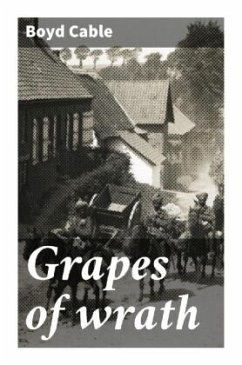In "Grapes of Wrath," Boyd Cable weaves a poignant narrative that captures the struggles of the working class amidst the socio-economic upheaval of the early 20th century. Utilizing a blend of vivid realism and stirring emotional depth, the novel explores themes of poverty, hope, and resilience through the lens of ordinary individuals caught in the throes of industrial expansion. Cable's use of lyrical prose and rich imagery reflects the influences of his contemporaries, adding a unique voice to the literary canon of social critique prevalent in the post-World War I era. Boyd Cable, an English novelist and war correspondent, was profoundly affected by the societal changes and hardships he observed. His firsthand experiences in both World War I and the evolving industrial landscape inspired him to pen this powerful text, which serves as an unflinching commentary on the human condition and the innate drive for dignity and justice. Cable's background in journalism and his keen eye for detail imbue the narrative with authenticity and urgency, resonating deeply with readers seeking to understand the complexities of human struggle. I highly recommend "Grapes of Wrath" to those interested in historical fiction that bravely confronts themes of inequity and perseverance. This novel not only offers an immersive reading experience but also encourages self-reflection on the societal issues that persist today, making it a timeless contribution to the discourse on social justice.
Bitte wählen Sie Ihr Anliegen aus.
Rechnungen
Retourenschein anfordern
Bestellstatus
Storno








